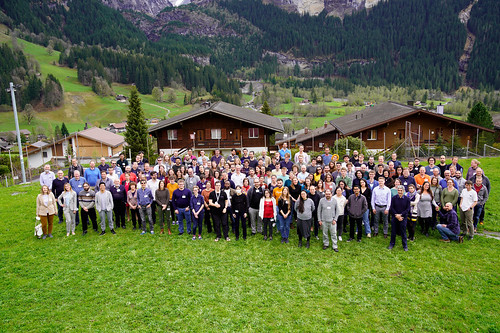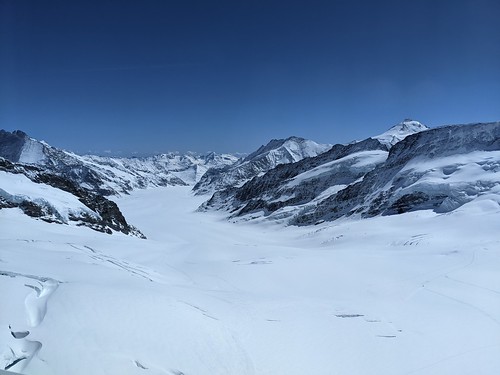General Assembly 2022 in Grindelwald

The first in-person General Assembly in two years took place in Grindelwald. Nearly 150 members and associates, as well as the Advisory Board, gathered there to present and listen to each other’s research progress, catch up with or meet colleagues in-person for the first time and overall enjoyed a very rewarding time.
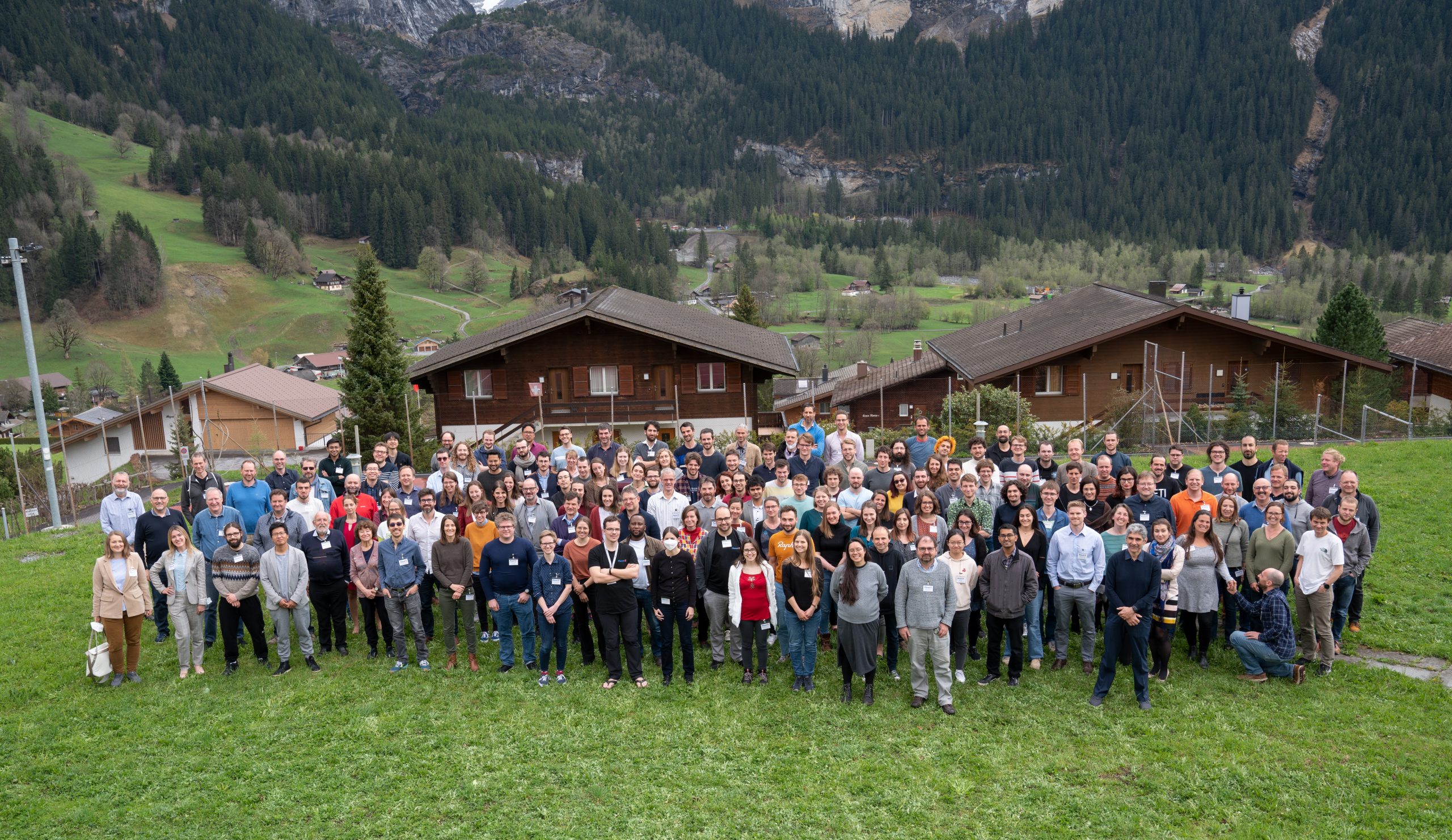
Members, associates and the advisory board of the NCCR PlanetS at the General Assembly 2022 in Grindelwald. Image: Arian Bastani
After two years and countless Zoom meetings, this year’s General Assembly of the NCCR PlanetS could finally take place in-person again. And not just anywhere, but at the foot of the impressive scenery of the Eiger, Mönch and Jungfrau in Grindelwald.

Alpine scenery in the vicinity of the GA venue. Image: Guido Schwarz
On the first day, we looked back on the activities of the past four years with co-director Stéphane Udry. He presented the large and diverse body of scientific work that was produced by our researchers and highlighted some of the many prestigious grants and honours our members received. The designated director of the third and final phase of the NCCR, Nick Thomas, later showed us where the consortium will be headed, and emphasized the vital importance of collaborative efforts within PlanetS.
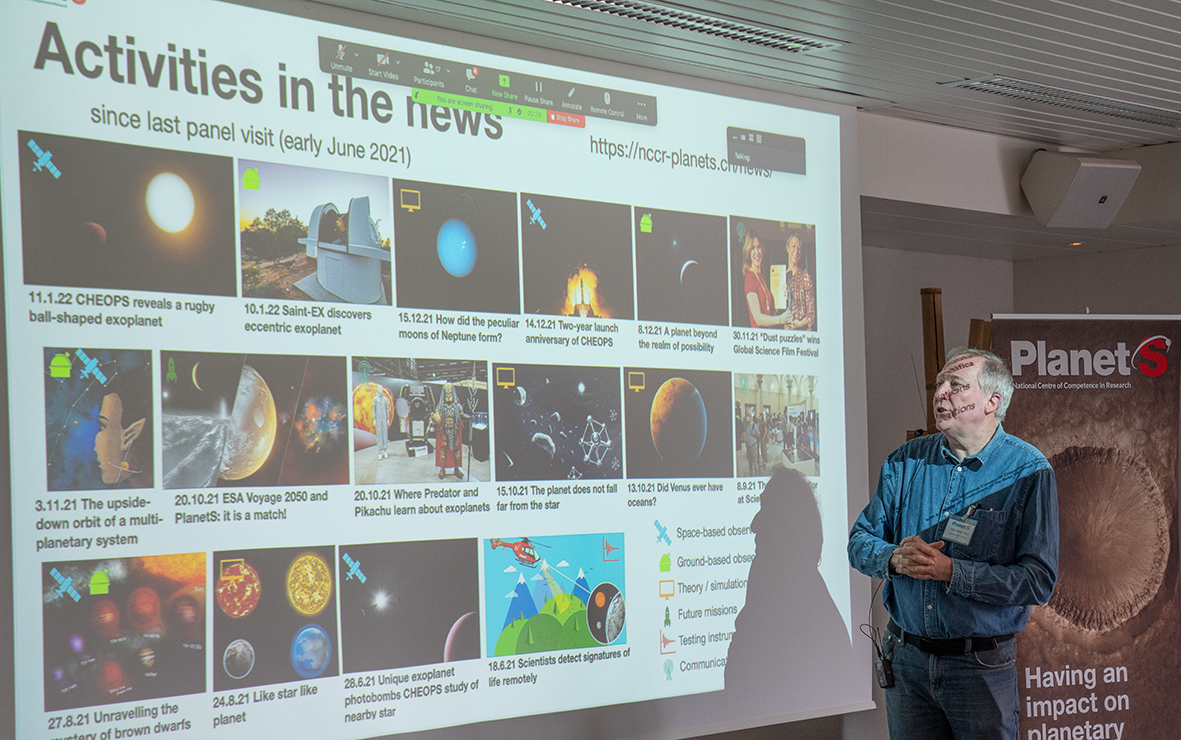
Stéphane Udry looks back on activities and results of PlanetS during phase 2 of the NCCR. Image: Arian Bastani
On the second day, our researchers took us on journeys to strange worlds in the vastness of space. From newly discovered exoplanets and new insights into our cosmic neighbours in the solar system, to sophisticated new planet formation models that show unexpected similarities with fondue and dumpling soup, the interested audience received the latest insights into the diverse research areas of the NCCR.
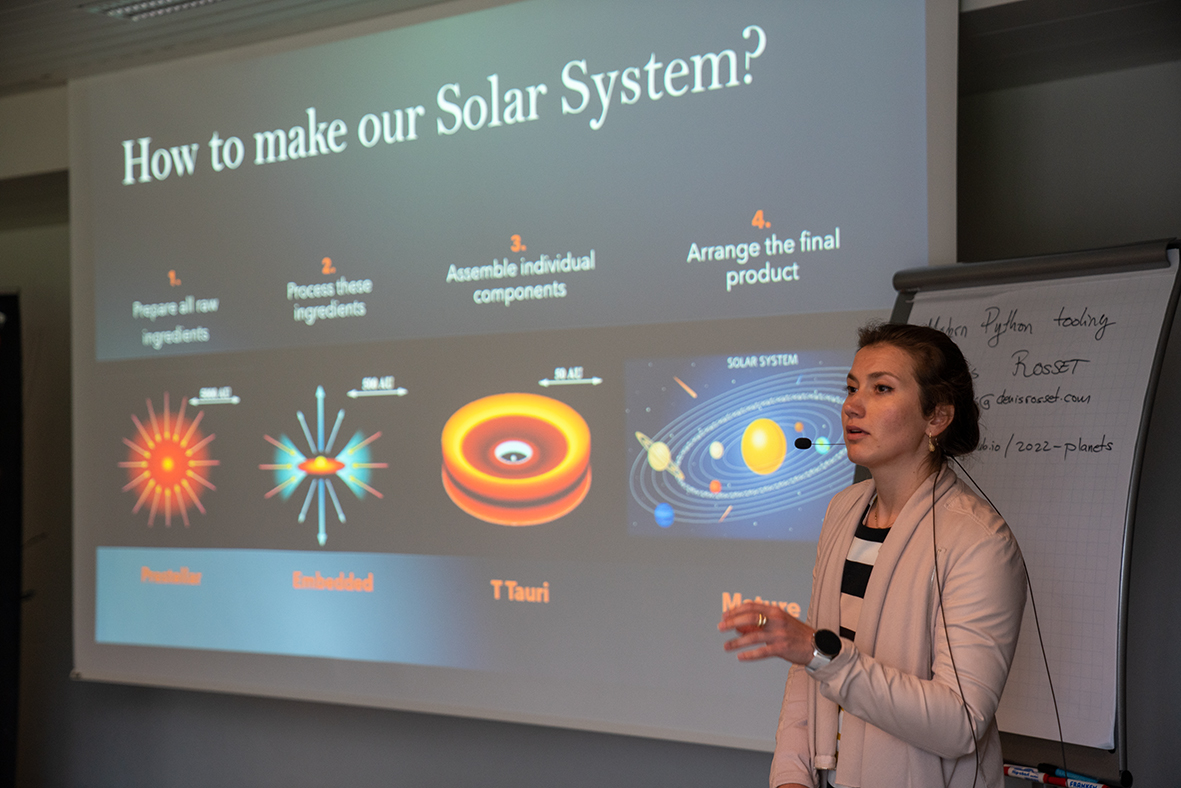
Maria Drozdovskaya presented her work on astrochemical recipes for solar-like systems. Image: Arian Bastani
The informal exchange over coffee during the breaks, which was so lacking during the pandemic, was not neglected either. Our members from different universities had lively discussions about possible collaborations that could lead to the next breakthrough in their field.
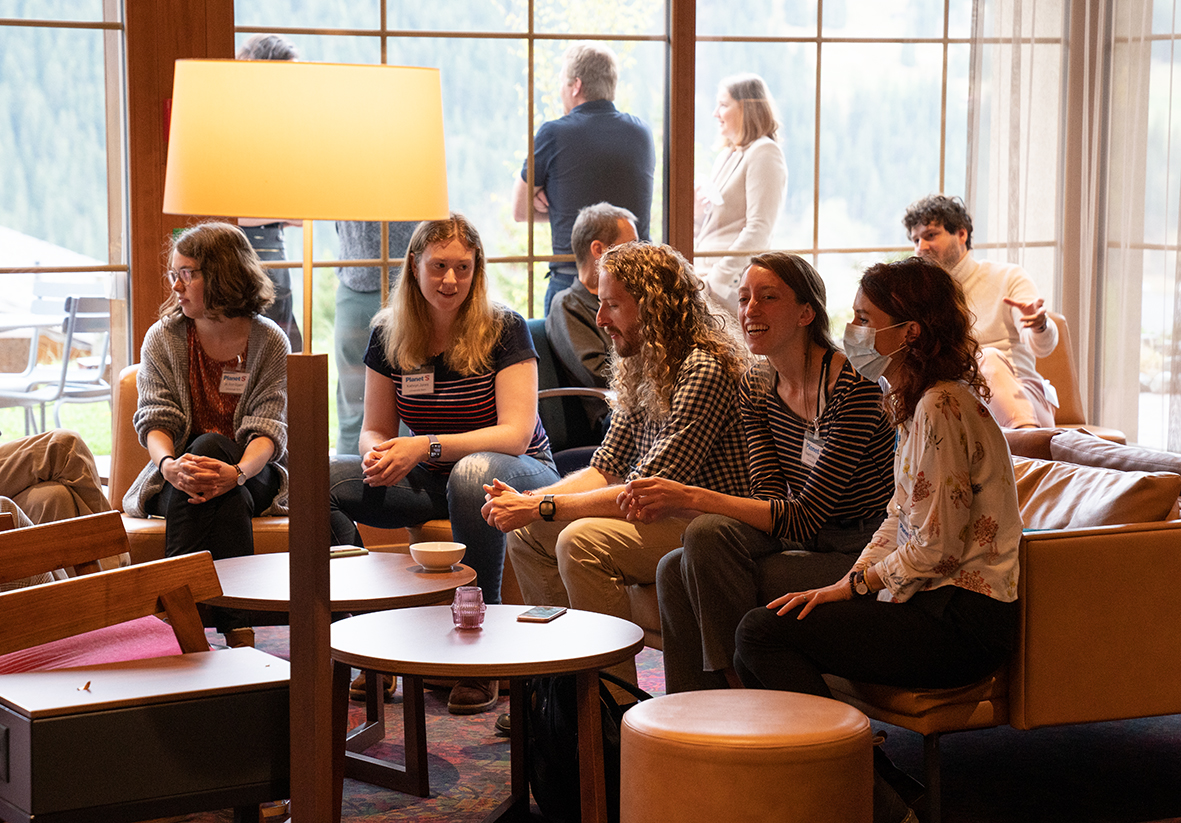
PlanetS researchers on a coffee break between research presentations. Image: Arian Bastani
Fortunately, they could count on advice from someone who should know: Nobel laureate Michel Mayor always has an open ear for the concerns of the next generation.
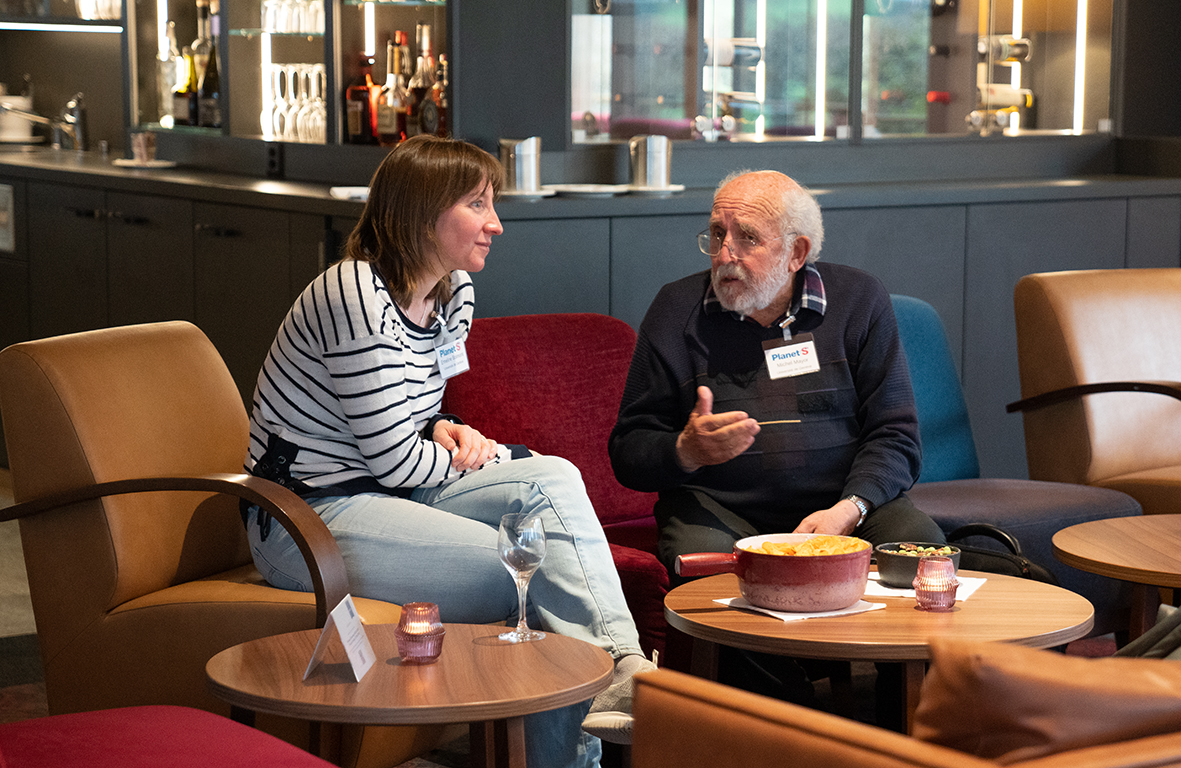
PlanetS member Émeline Bolmont and advisory board member Michel Mayor in conversation during a coffee break. Image: Arian Bastani
On the third day, there were internal domain presentations, in which the researchers informed their colleagues about the progress of their projects. The highlight of the day, however, was a trip to the Jungfraujoch – the so-called Top of Europe. While some admired the breath taking scenery on a walk at over 3500 meters above sea level…
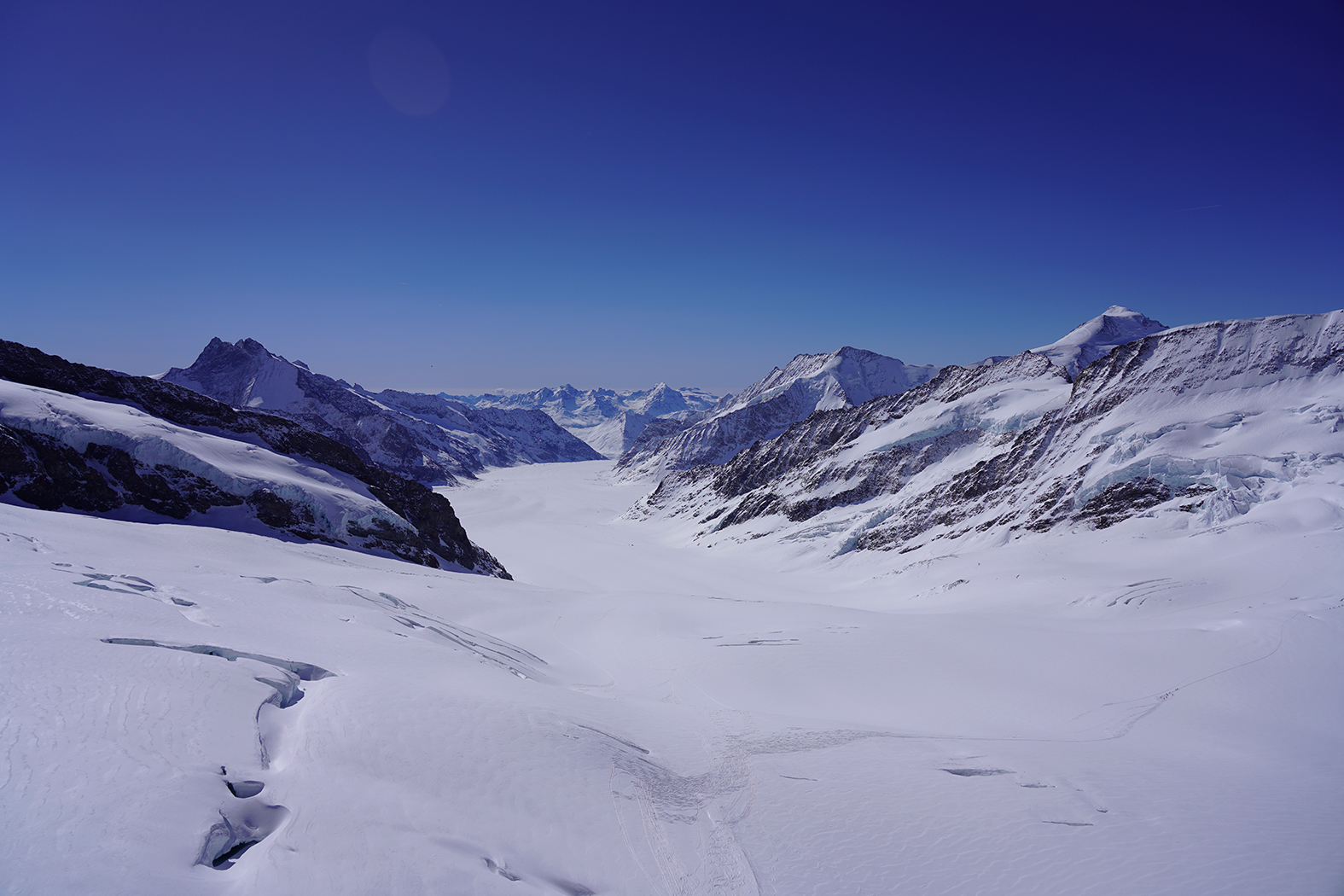
Alpine scenery in view from the Jungfraujoch. Image: Guido Schwarz
…others visited the observatory near the mountain top and learned about the work of the researchers there.
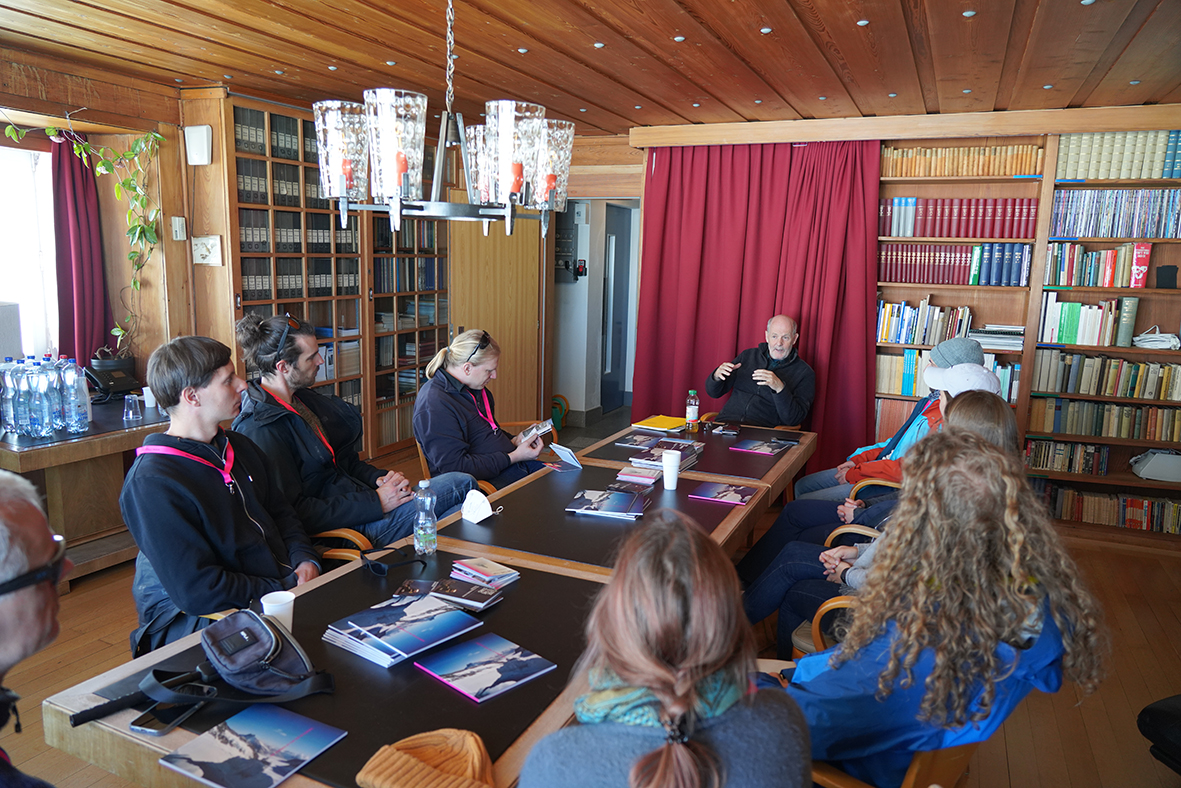
PlanetS members visiting the Observatory atop the Jungfraujoch learn about its history from one of the resident researchers. Image: Guido Schwarz
The fourth and final day of the General Assembly began with summary presentations on the domains’ research efforts. It also featured and a long-awaited overview of CHEOPS’ activities and the results associated with it. In addition, Nick Thomas gave an update on the vision and status of Swiss Institute of Planetary Sciences (SIPS), in which he described it as a way of investing in and further strengthening Switzerland’s position as a leading nation in the field.
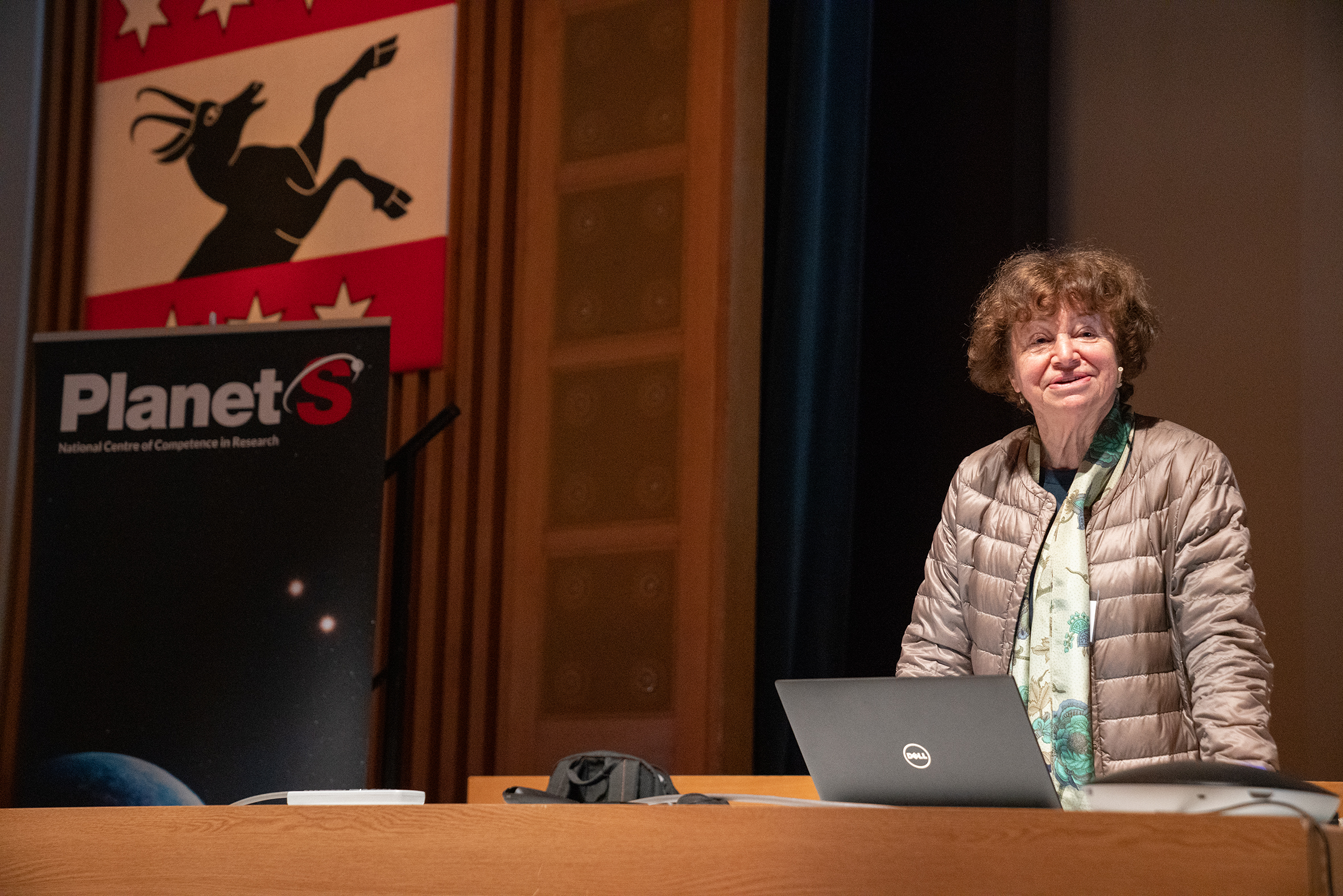
Catherine Cesarsky delivers the feedback on behalf of the entire advisory board on the status of PlanetS. Image: Arian Bastani
The event was concluded with feedback from former director of the European Southern Observatory and president of the International Astronomical Union Catherine Cesarsky, on behalf of the Advisory Board, which is completed by Nobel laureates Michel Mayor and Brian Schmidt. The Board was very impressed by the quality of the research conducted, Cesarsky said, and especially praised the young members of the NCCR. She also mentioned the need to formulate a narrative for the continuation of this excellent work and called the NCCR is a great success story.
More visuals from the General Assembly:
Categories: Internal Newsletter, News

